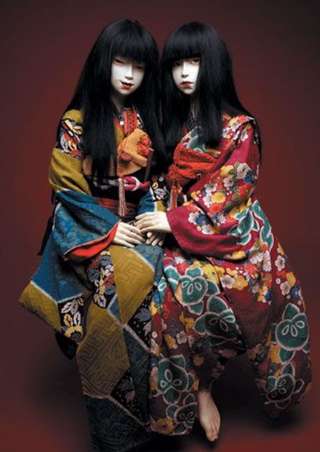deepundergroundpoetry.com

Senryu, and How It Differs from Haiku
Now posted as an article of reference in the DUP group The Haiku Pond.
Compared to other styles of poetry under the category of Haiku/ Eastern, there is comparatively little published about the more aggressive senryu.
Senryu, whose name means ‘river willow’, uses humor and satire to examine human society. Senryu takes on the form of haiku, but makes greater use of punctuation techniques (ellipses, exclamations, etc.) to convey its point. Senryu can use seasonal kigo, but does not rely on them. In senryu, the seasonal reference should be second in importance to the human portrayal. Contrary to popular belief, not all senryu is humorous. Many express misfortune, eroticism, political views (very important), religion & spirituality, and even anger (observational, not overflowing emotion like tanka). It is often bawdy, devoid of the subtle beauty known in haiku. Animals can also be represented through interaction using human personifications.
Originating during Japan's Edo period, senryu reflected both the societal and political turmoil of the time period. Popularized by a haijin named Senryu Karai, senryu was first recognized in the haiku contests going on in the cities. Haiku was written by the Japanese aristocratic class, court officials, and revered monks. Senryu was embraced and written by the common people. It was later given its own genre and studied alongside haiku and tanka.
While following the form of haiku, senryu is different in that it is not a form in itself. Senryu is a concept, a way of looking at things that are applied to haiku form, and a poetic genre that concerns human nature in its complex layers and emotions. More than being a style like haiku, known for its expression of nature within seasonal themes, senryu is a conceptual spinoff from haiku.
Since 2007, I have studied and written modern haiku, tanka, and senryu. To understand all three gives a wider range for expression. In the case of senryu, you become aware of your reactionary observations with the interaction of humanity from a social and cultural influence.
A small sampling of my own senryu offerings:
wasp nest
in my mailbox—
unpaid bills
soccer ball out of bounds—
kids running
for the ice cream truck
tackle box—
the ciggies Dad left
ten years ago
so much mental baggage
left behind—
a stick of gum in my pocket
beyond the reef
scattered ashes—
his son's trip to Peru
indebted—
in love
Jade’s update comment: Please notice
1: the absence of titles.
2: the range of syllable count used (Japanese haijin use ‘sound symbols’ which are shorter.
3: the number of lines used. Haiku & senryu can be 1, 2, or 3 lines.
4: the minimal use of upper-case letters. Proper names of people and places (countries, cities, towns, streets, etc) are some of the exceptions.
5: the absence of most or all punctuation. (The symbol you see in my samples is called an “emdash”.)
I thank all who have come to the font of my humble essay for any useful knowledge you may take away. My gratitude to our group host, Harry, and to the group & site’s creator, our Webmistress.
Jade (tiger)
Kyōshi hisui no tora
Compared to other styles of poetry under the category of Haiku/ Eastern, there is comparatively little published about the more aggressive senryu.
Senryu, whose name means ‘river willow’, uses humor and satire to examine human society. Senryu takes on the form of haiku, but makes greater use of punctuation techniques (ellipses, exclamations, etc.) to convey its point. Senryu can use seasonal kigo, but does not rely on them. In senryu, the seasonal reference should be second in importance to the human portrayal. Contrary to popular belief, not all senryu is humorous. Many express misfortune, eroticism, political views (very important), religion & spirituality, and even anger (observational, not overflowing emotion like tanka). It is often bawdy, devoid of the subtle beauty known in haiku. Animals can also be represented through interaction using human personifications.
Originating during Japan's Edo period, senryu reflected both the societal and political turmoil of the time period. Popularized by a haijin named Senryu Karai, senryu was first recognized in the haiku contests going on in the cities. Haiku was written by the Japanese aristocratic class, court officials, and revered monks. Senryu was embraced and written by the common people. It was later given its own genre and studied alongside haiku and tanka.
While following the form of haiku, senryu is different in that it is not a form in itself. Senryu is a concept, a way of looking at things that are applied to haiku form, and a poetic genre that concerns human nature in its complex layers and emotions. More than being a style like haiku, known for its expression of nature within seasonal themes, senryu is a conceptual spinoff from haiku.
Since 2007, I have studied and written modern haiku, tanka, and senryu. To understand all three gives a wider range for expression. In the case of senryu, you become aware of your reactionary observations with the interaction of humanity from a social and cultural influence.
A small sampling of my own senryu offerings:
wasp nest
in my mailbox—
unpaid bills
soccer ball out of bounds—
kids running
for the ice cream truck
tackle box—
the ciggies Dad left
ten years ago
so much mental baggage
left behind—
a stick of gum in my pocket
beyond the reef
scattered ashes—
his son's trip to Peru
indebted—
in love
Jade’s update comment: Please notice
1: the absence of titles.
2: the range of syllable count used (Japanese haijin use ‘sound symbols’ which are shorter.
3: the number of lines used. Haiku & senryu can be 1, 2, or 3 lines.
4: the minimal use of upper-case letters. Proper names of people and places (countries, cities, towns, streets, etc) are some of the exceptions.
5: the absence of most or all punctuation. (The symbol you see in my samples is called an “emdash”.)
I thank all who have come to the font of my humble essay for any useful knowledge you may take away. My gratitude to our group host, Harry, and to the group & site’s creator, our Webmistress.
Jade (tiger)
Kyōshi hisui no tora
All writing remains the property of the author. Don't use it for any purpose without their permission.
likes 7
reading list entries 3
comments 19
reads 1235
Commenting Preference:
The author is looking for friendly feedback.
















